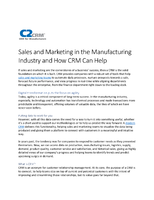Monitoring Freezers and Cryogenic Tanks in a Biobank
Accsense Wired Pods Enable Title 21 CFR Part 11 Compliance
CHESTERLAND OH - CAS DataLoggers recently provided the wired temperature monitoring solution for a biorepository storing a wide range of life science materials including blood and tissue samples, common and experimental drugs, and many other high-value specimens and goods. Every material stored in the repository's medical refrigerators, freezers and cryogenic tanks required continual temperature monitoring and data archiving to preserve the inventory as well as ensure compliance with the FDA's Title 21 CFR Part 11 and other regulatory demands. Additionally, management often had to prevent sudden temperature fluctuations caused by staff opening the doors too frequently, so they planned to install wall switches and set up door alarms. To find a single solution addressing all these concerns, senior staff began searching for an automated temperature monitoring and alarm system capable of high-precision measurements and archiving, the ability to connect to the switches on the walls to count door openings, and advanced alarm features including calls over a landline or cell or to send text messages and emails. The system also needed to be both cost-effective and easy to use and maintain, with power over Ethernet technology to decrease the number of wires required to install the network.
The biobank installed 12 Accsense A2-05 Ethernet Wired Temperature Measurement Pods throughout their medical storage area, connected to its medical refrigerators, freezers, and cryogenic tanks to provide continual temperature monitoring. The Accsense automated system supported power over Ethernet for quick and easy installation and setup, featuring centralized management with no software to install--workers just plugged the monitor into a router with a DHCP server or assigned it a fixed IP address using the Accsense utility.
Specifically designed for measuring temperatures in medical refrigerators, freezers, incubators, and in cryogenic storage, the Accsense A2-05 LAN-wired data loggers each featured inputs for two external RTD temperature probes with a wide range of -100°C (-148°F) to +100°C (+212°F) for use in refrigerators and freezers, and an additional input for 1 thermocouple measuring from -200°C (-328°F) to -100°C (-148°F) for use in their cryogenic storage tanks, placing the probe in the unit's vapor chamber. Staff then used one of each pod's RTD inputs to connect to a wall switch to count the number of times a particular fridge or freezer door was opened during a certain time period.
Each pod included a power adapter and Ethernet cables, supporting power over Ethernet for a lower cost and easier maintenance compared to traditional wiring. In case of a power failure or network connection loss, the Accsense system could keep running for 6 hours on its internal lithium battery, during which the data loggers would continue to buffer data. During outages, the pods could store up to 256 data points or until connection was restored, ensuring that all products remained under monitoring. Additionally, the wired pods could be utilized with other Accsense wired and wireless dataloggers to further configure the system if desired.
As soon as they began recording temperature data from the biobank's refrigerators, freezers and LN2 tanks, the A2-05 wired pods automatically sent all the information to the secure Rackspace servers at Accsense where it was encrypted and stored. Personnel then used the data loggers to access live and historic data and to set local and remote alarms to activate whenever any unit's temperature went out of specification, and whenever their doors were opened more than a configurable number of times.
Operators further utilized the Accsense system's alarm capabilities by setting up landline phone calls to deliver alarms at any time storage temperatures went outside specification, and additional alarms could be sent by email and text messages. Multiple wired monitors could also be viewed simultaneously from a single screen, and users could quickly login using any Web browser to retrieve reports and graphs or to modify the system's configuration from anywhere Internet connection was available.
The biorepository benefitted immediately following installation of the Accsense wired temperature monitoring system in several key ways. The A2-05 Ethernet dataloggers performed continual temperature monitoring for the medical refrigerators, freezers, and cryogenic tanks, and management relied on the system's many alarm capabilities to deliver a phone call and other warnings of potentially disastrous events occurring such as freezer failures by showing that temperature had suddenly gone out of specification. Using Accsense, the biobank was also able to stabilize fridge and freezer temperatures by alarming the units' doors, preventing excessive door opening and risk to inventory. Also, the Accsense wired system automatically sent its data to secure servers which provided the archiving and data storage functions needed to keep pace with Title 21 CFR Part 11 compliance. Additionally, staffers soon learned every aspect of the system's user-friendly operation, with no need to rely on an IT department for training sessions.
For more information on the Accsense A2-05 Ethernet Wired Temperature Measurement Pod, other cloud-based Accsense systems, or to find the ideal solution for your application-specific needs, contact a CAS Data Logger Applications Specialist at (800) 956-4437 or visit the website at www.DataLoggerInc.com.
Contact Information:
CAS DataLoggers, Inc.
12628 Chillicothe Road
Chesterland, Ohio 44026
(440) 729-2570
(800) 956-4437
sales@dataloggerinc.com
http://www.dataloggerinc.com




